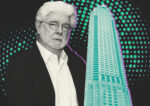Trending
Liquor rule switch could boost Biscayne Boulevard properties’ value
The Miami Modern in the Biscayne Boulevard Historic District may move into
a more modern era following a Miami City Commission decision to allow
more restaurants to serve liquor despite current restrictive rules.
Restaurants in the “MiMo” area, named for its distinctive architectural
style, can now offer full bars, which will allow landlords to unlock
the full value of their real estate.
In most parts of Miami, restaurant operators cannot obtain a beer, wine
and liquor license if it is located within 1,500 feet of another
full-service bar. Most restaurants can only get a beer and wine license
and, in the city of Miami, selling a customer a beer without first
serving food is against the law.
The ordinance will enable restaurants located between 50th and 77th
streets with more than 30 seats to obtain a full liquor license if the
properties where they are located have been rehabilitated. It would enable them to get the full liquor license even if they are next to another fully
licensed establishment, a dispensation that makes the properties all
the more valuable.
“I think it will help them,” said commercial real estate broker and
developer David Lombardi, president of Lombardi Properties. “The rents
along Biscayne Boulevard are $30 to $35 a square foot at triple net
[leases]. Some are as high as the mid-$50s. I think it will encourage
people to open restaurants… which will perpetuate the success of the
street.”
The proposed ordinance must have a second reading by the commission to
be fully approved. Yet the measure was supported by Upper Eastside
activists and local preservationists who feel that the code will
breathe new life into the area, which includes small motels that were
constructed in the 1940s and 1950s.
MiMo Coalition members even pushed for the removal of a requirement
that a property must be deemed a historical contribution in order to
qualify for the distance waiver. “We are trying to bring people to this
area of the city,” said Fran Rollason, president of the MiMo Coalition.
Lou Terminello, a prominent Miami liquor attorney who handles liquor
license applications, said limiting the waiver to historic buildings
does not make sense. “I can’t think of any reason why it should not be
like Wynwood,” Terminello said, referring to the recently created
Wynwood Café District which waves distance requirements for the first
25 “alcohol-serving establishments.”
Eric Silverman, a Coldwell Banker real estate broker who is renovating
the Vagabond Motel, disagreed. Liquor licenses should first be limited
to contributing historic structures like his motel — at least until 200
more parking spaces can be located within the area. “I think it should
be done gradually, that we allow two or three licenses a year,” he said.
The commission disagreed, unanimously striking “contributing buildings” from the code before passing it on first reading.
Once fully enacted, that part of Biscayne Boulevard will become more
desirable for restaurateurs and other ventures — increasing the value of
commercial spaces there, said Fran Clougherty, a commercial broker with
Majestic Properties. “Booze and entertainment always helps,” he said.
“And that neighborhood, in my opinion, still needs something to jump
start it to the next level.”




